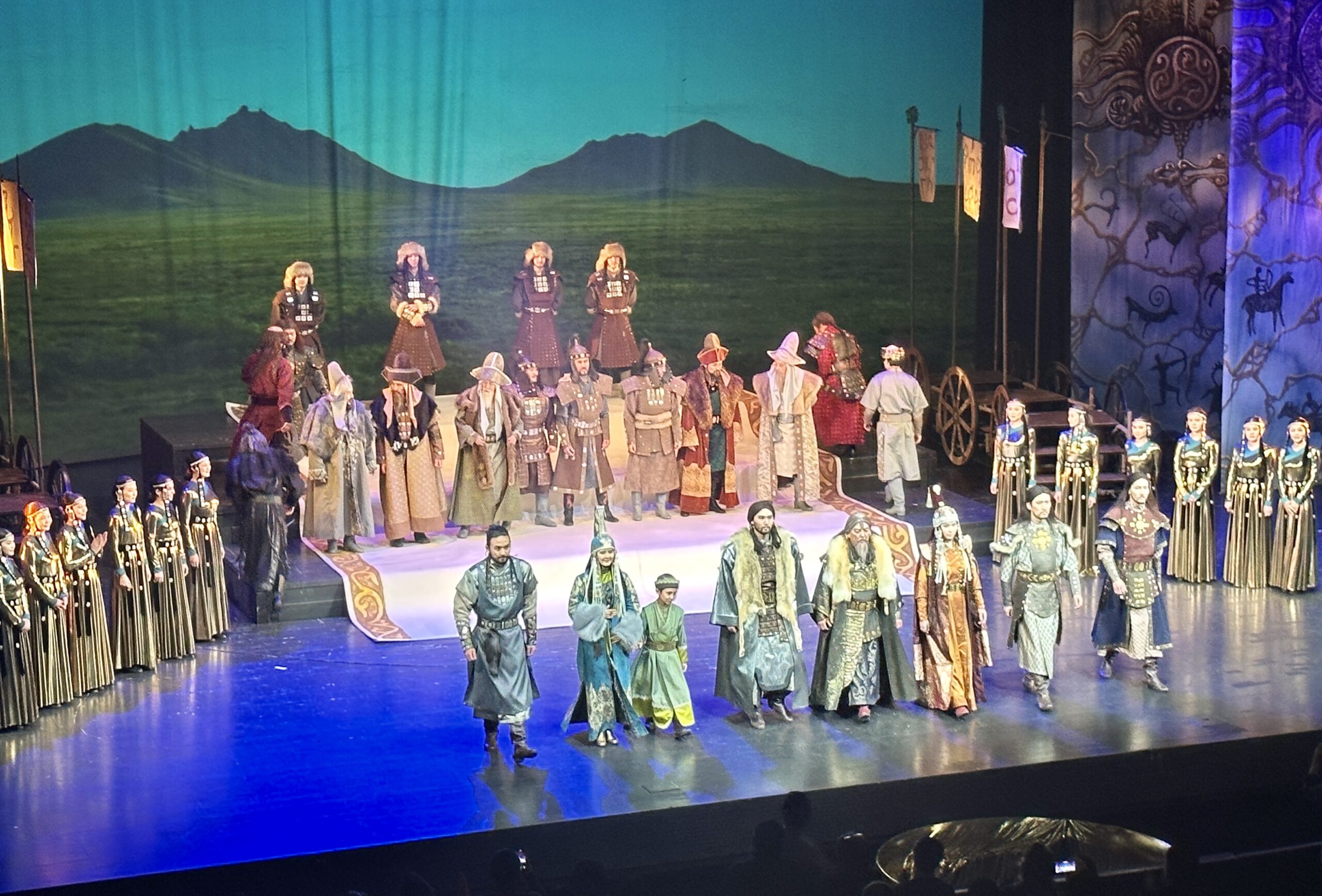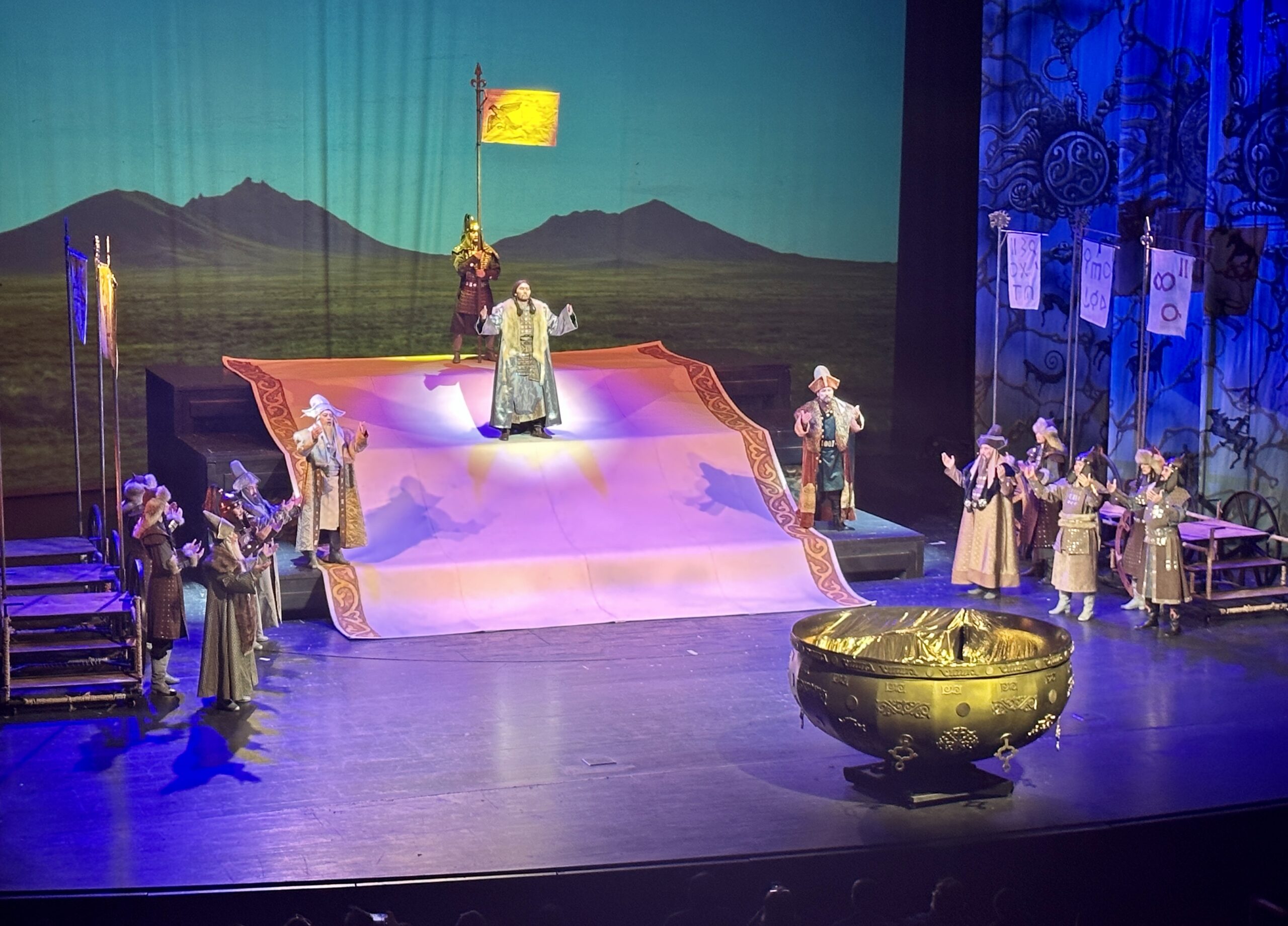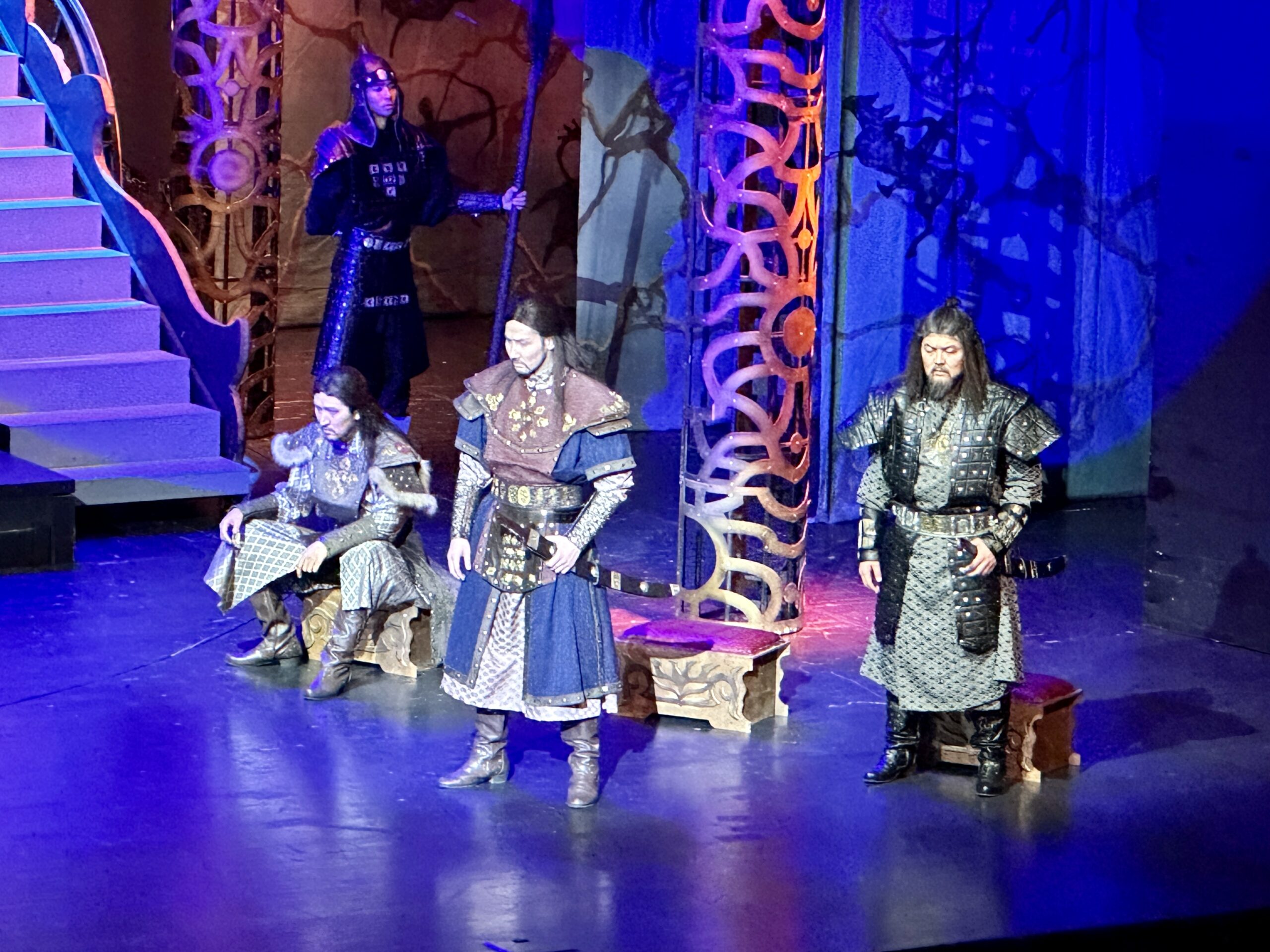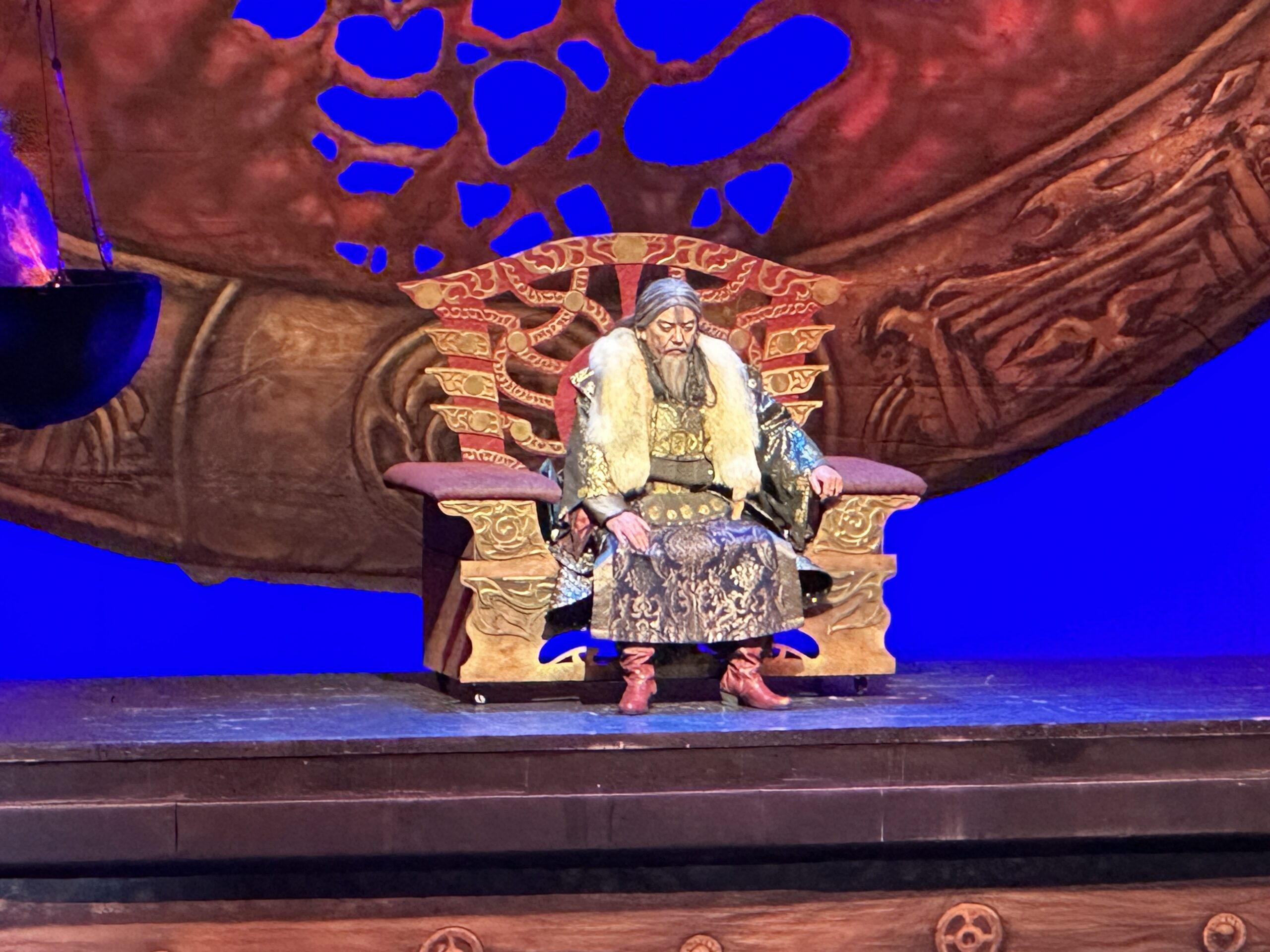ASTANA – The “Zhoshy Khan” historical drama drew a full house at the Kuanyshbaev Kazakh State Academic Musical and Drama Theater on a cold Astana evening on Jan. 11. The event commemorated the establishment of Zhoshy Khan’s rule eight centuries ago.

The “Zhoshy Khan” historical drama draws a full house at Kuanyshbaev Kazakh Musical and Drama Theater. Photo credit: The Astana Times.
The play transports audiences to ancient Kazakh history – a medieval multinational state known as the Zhoshy Ulus, Ulug Ulus, or the Kipchak Khanate, which emerged in the 13th century and serves as a historical precursor to the Kazakh Khanate.
Premiering in June last year, the play was praised by President Kassym-Jomart Tokayev for its significance in shedding light on a crucial period in Kazakh history and the nation’s prominent figures.
“We need to celebrate our history and cultural values among our people. Some say that the Kazakhs did not have their own history and statehood. This is a distortion of our history,” said the President.

In the final scene the leaders of various tribes lift the new ruler, Zhoshy, on the carpet. Photo credit: The Astana Times.
Stage director Bolat Uzakov, who has previously presented dramas about Kazakh rulers such as Zhangir Khan, Abylai Khan, Kenesary Kasymuly, and Kerey and Zhanibek sultans, said the play’s significance lies in its depiction of the early stages of Kazakh statehood.
“It can be said that the Golden Horde, the Zhoshy Ulus and Zhoshy Khan stood at the foundations of statehood on our Kazakh steppe, marking the start of the history of the Kazakh people. Zhoshy Khan’s history is where the major historical event starts. At various times, the Zhoshy descendants reigned over Kazakhstan as khans,” explained Uzakov.
The play paints a panorama of 13th-century Kazakh lands, with scenes shifting from the battlefield to Genghis Khan’s council chamber and from loyalty issues to family conflict. As a drama, it tells the story of a son’s journey from youth to maturity, navigating sibling rivalry, thoughts of conscience, and defiance against his father’s ways as Genghis Khan faces a gradual decline.

At Genghis Khan’s council-chamber. Photo credit: The Astana Times.
Zhoshy is portrayed as a warrior who embodies both the glory of military heroism and compassion for the nations he conquered. Played by the talented young artist Kaiyrzhan Sadykov, the character unveils the multifaceted nature of Zhoshy. Sadykov skillfully brings to life Zhoshy’s commanding presence as a just ruler while also delicately portraying the softer dimensions of the character as a compassionate father and leader who genuinely cares for his people.
The play’s first part depicts the confrontation between Shagatai, Genghis Khan’s second son, and Zhoshy during the capture of the Urgenish city that could escalate into a dispute within the khanate. Genghis Khan, displaying foresight and astute political acumen, diffuses the tension by wisely dividing the lands among his four sons.
The subsequent part unfolds with Zhoshy uniting his Turkish progeny under a single banner, contemplating the pursuit of peace and national unity for his country.

Genghis Khan. Photo credit: The Astana Times.
Zhoshy’s ultimate decision to loosen absolute authority in favor of a collective jury of bis (bi – noble judge) initially raised doubts among the leaders of various tribes. However, their act of jointly lifting the new ruler, Zhoshy, on the carpet is a momentous tribute to the power of collective action.
